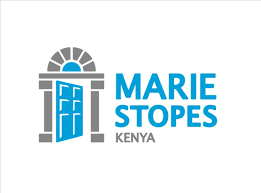The Impact of Mobile Phone-Based Post-Abortion Support in Kenya

In partnership with IPA Kenya and Marie Stopes Kenya clinics, researchers conducted a randomized evaluation to assess whether a post-abortion phone call and additional phone follow-up support from either a nurse or a peer counselor reduced perceived social stigma and improved social support and mental health for women post-abortion. Phone calls from a nurse marginally improved women’s mental health and perceived social stigma.
In Kenya, women’s access to safe abortion services remains highly restricted despite legal reforms coupled with efforts to improve accessibility. Abortions are permitted only if a trained health professional deems the woman’s life or health is threatened. Approximately 464,000 Kenyan women had abortions in 2012 and 2,600 women die annually from unsafe abortions.1 Studies have identified abortion stigma as a primary barrier for Kenyan women.2 Marie Stopes Kenya (MSK), which operates reproductive health clinics, developed a program of person-centered abortion care consisting of post-abortion follow-up calls from a clinic call center.
In partnership with MSK and IPA Kenya, researchers conducted a randomized evaluation to measure whether MSK’s post-abortion procedures plus additional follow-up phone support from a nurse or a peer counselor could reduce perceived social stigma and improve social support and mental health for women post-abortion. The intervention included 371 women who received abortion services at one of the MSK clinics in Nairobi County. The women were randomly assigned to one of the following groups:
- Nurse phone calls: Women received the standard procedure of the MSK clinics. They also received follow-up calls from a nurse 24 hours at three intervals: 24 hours, one week, and three weeks after the abortion, and two SMS messages. The nurses were trained in person-centered abortion care.
- Peer counselor phone calls: This group received the standard procedure of the MSK clinics. Additionally, they received follow-up calls at three intervals: 24 hours, one week, and three weeks after the abortion from a peer, woman who experienced abortion in the past, and two SMS messages. The peers were trained in person-centered abortion care.
- Comparison group: This group received the standard procedure of the MSK clinics.
Two weeks after the intervention, mental health increased for women in all three groups. After four weeks, social support increased, and social stigma decreased by seven points on average for women in the nurse and peer counselor phone call groups. Relative to the comparison group, only the nurse's phone call improved women’s mental health while reducing feelings of shame and stigma.
Sources
1 Mohamed, Shukri F., Chimaraoke Izugbara, Ann M. Moore, Michael Mutua, Elizabeth W. Kimani-Murage, Abdhalah K. Ziraba, Akinrinola Bankole, Susheela D. Singh, and Caroline Egesa. 2015. “The Estimated Incidence of Induced Abortion in Kenya: A Cross-Sectional Study.” BMC Pregnancy and Childbirth 15 (1). https://doi.org/10.1186/s12884-015-0621-1. ; Goldberg, Justin. 2010. “In Harm’s Way: The Impact of Kenya’s Restrictive Abortion Law.” Center for Reproductive Rights. February 25, 2010. https://reproductiverights.org/in-harms-way-the-impact-of-kenyas-restrictive-abortion-law/.
2 Jayaweera, Ruvani T., Felistah Mbithe Ngui, Kelli Stidham Hall, and Caitlin Gerdts. 2018. “Women’s Experiences with Unplanned Pregnancy and Abortion in Kenya: A Qualitative Study.” Edited by Ganesh Dangal. PLOS ONE 13 (1): e0191412. https://doi.org/10.1371/journal.pone.0191412.
Implementing Partner













